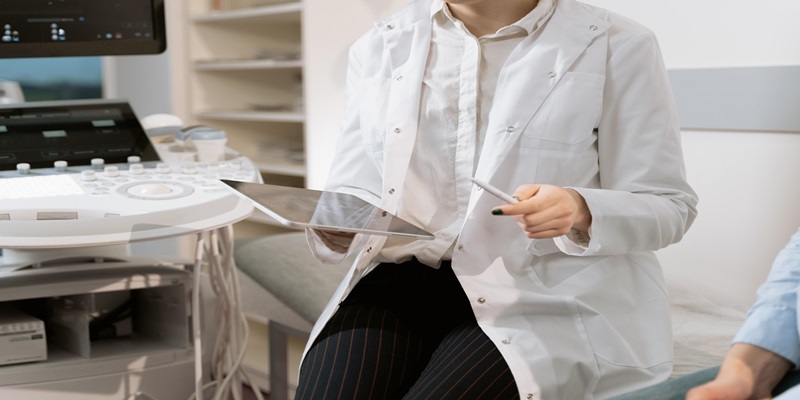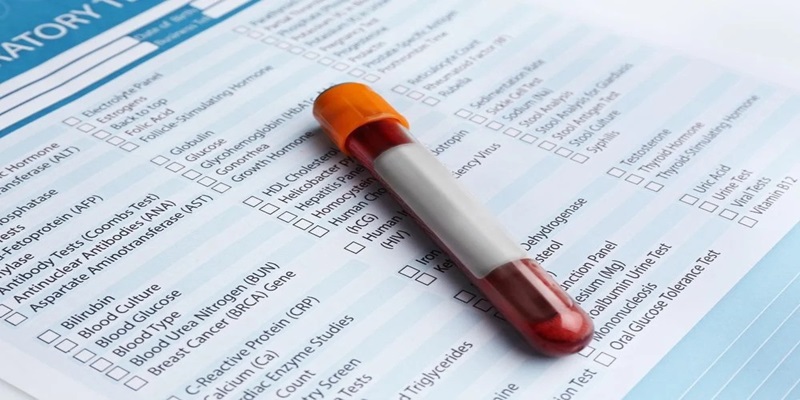Prioritizing Senior Wellness: Benefits of Regular Health Screenings
As you age, taking care of your health is more important than ever. Scheduling routine health screenings is an essential part of your overall wellness and can detect potential problems early when they can most effectively be addressed.
Importance of Health Screenings for Senior Citizens
Regular health screenings contribute enormously to seniors' overall wellness and quality of life. As age takes its toll, your body experiences many changes that make your senior years a high-risk period for developing certain medical conditions. By having routine checkups, you can detect potential complications in the early stages and act early to correct them.
Early Detection and Prevention
Health screenings enable you to detect ailments in the early stages when these have no symptoms and can cause no apparent symptoms but can save your life when detected at early stages with routine screenings. High blood pressure, diabetes, and many forms of cancer, for instance, have no symptoms in the early stages but can have significant implications when detected early through routine screenings.
Tailored Health Planning
By having routine screenings, you and your doctor can gain a complete picture of your overall health. With such information, personalized care planning can be developed to your specific requirements, and with a perfect care plan, your overall wellness can be kept at its best in your senior years.
Peace of Mind
Knowing your health status can bring a lot of peace of mind. Frequent screenings can confirm that you're healthy or detect areas that require work. Having such information empowers you to make wise choices regarding your lifestyle and medical care.
Common Health Screenings Recommended for Older Adults

With age, routine health tests become even more important in keeping one healthy and detecting potential concerns early. Some crucial tests that medical professionals use for senior citizens include:
Cardiovascular Health Exam
The heart is essential at any age, and routine blood pressure tests, blood tests for fat in your blood (cholesterol tests), and ECGs (electrocardiograms) can detect early symptoms of heart disease. Your physician can also prescribe tests for stress and echocardiograms to evaluate your heart function in detail.
Cancer Screenings
Early detection is key when dealing with cancer. On your age, gender, and risk factors, your physician can prescribe any one of the following tests:
• Mammograms for breast cancer
• Colonoscopies for colorectal cancer
• Prostate-specific antigen (PSA) tests for prostate cancer
• Skin exams for melanoma and other types of skin cancer
Bone Densitometry
Bone loss (osteoporosis) with age, particularly for women, is not a rare issue. Bone density tests, or DEXA tests, can detect low bone density even before fractures occur, and one can implement preventive and early intervention measures.
Eye and Ear Checks
Eye exams and ear tests must be conducted regularly to maintain a healthy life and independence. These tests can detect glaucoma, cataracts, and hearing loss, which, when detected early, can be treated and become minor issues.
How Frequent Checkups Can Get Problems Detected Earlier?

Regular health tests form an integral part of preventive care for older adults, offering a potent tool for discovering potential problem areas for intervention prophylactically before they become critical medical issues. Checkups serve as an early alarm, and through them, medical professionals can detect concerns at an early stage.
The Strength of Early Identification
Regular testing can identify a range of medical concerns, including high blood pressure, diabetes, and certain types of cancer. By identifying such diseases at an early stage, older adults have a much greater chance of effective treatment and management. Early high blood pressure can save lives, averting heart disease and stroke.
Tailored Screenings for Elders
Our medical needs vary with age, and routine follow-ups allow doctors to tailor tests according to age, gender, and medical risk factors for each individual. Tailored care ensures older adults receive only relevant and valuable tests, such as tests for bone density and mental tests.
Monitoring Health Over Time
Regular testing forms a beneficial record of an older adult's medical state over several years. With such a long-term perspective, medical professionals can detect minor, almost imperceptible trends for altering medical care, including changing weight, blood pressure, and blood fats, which signify emerging medical concerns that must be addressed.
Making the Most of Your Healthcare Visits

Be prepared for your checkup
Before your health testing, spare a little preparation time. Write down your current drugs, including over-the-counter medications and supplements. Write down any symptoms and medical concerns, no matter how insignificant such symptoms and problems seem to you at present. All such information helps your medical practitioner obtain a complete picture of your medical state.
Ask questions and take notes
During your journey, don't hesitate to speak out and have your questions addressed. Ask for an explanation when a point isn't understood. Having a family member present, a pen, and a notepad in the pocket can enable one to remember key information. Ask for an explanation for each test in terms of what it means and any follow-up actions one can and must perform.
Follow-Up and Follow Through
Following your testing, make sure that you understand your results and any actions your doctor recommends. In case new medications or life-altering interventions have been prescribed, make a strong determination to follow through. Set any follow-up appointments or additional testing in motion. Remember, your doctor is your partner in maintaining your wellness, and don't opt out of the process.
Staying Informed and In Charge
Between appointments, inform yourself about your ailments and new information about senior wellness. Reliable medical websites and your community senior activity and information center can act as helpful guides. By taking a proactive and educated role, you will become a wiser, more brilliant participant in your care and a more communicative companion with your doctor.
Making Health Screenings a Lifelong Habit
Navigating your golden years, remember that routine medical tests are your best bet at staying healthy and in control of your life. By prioritizing them, you're taking charge of your life and opening doors to a healthy, productive life. Don't let fear and inconvenience stop you - early detection and evasion win out over any momentary pain. Adopt this proactive attitude toward your wellness, and you will be better equipped to cope with whatever life throws at you.





